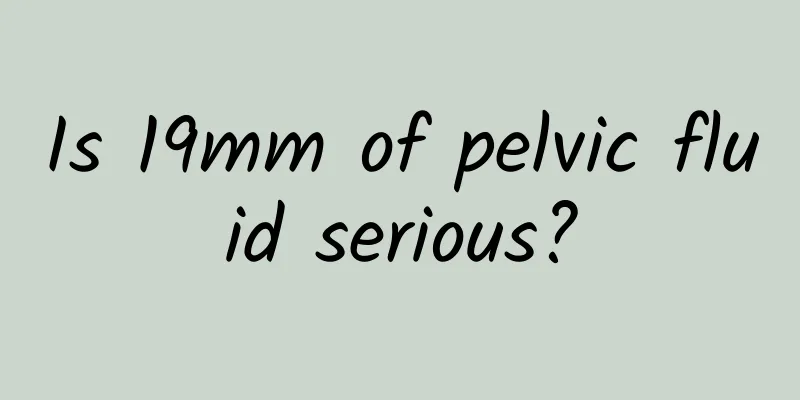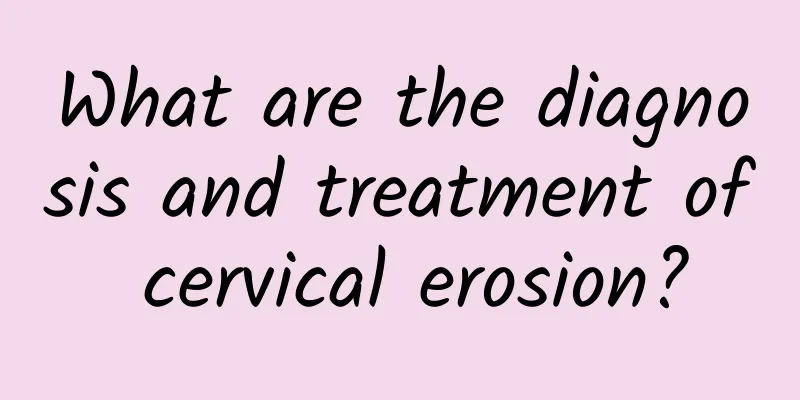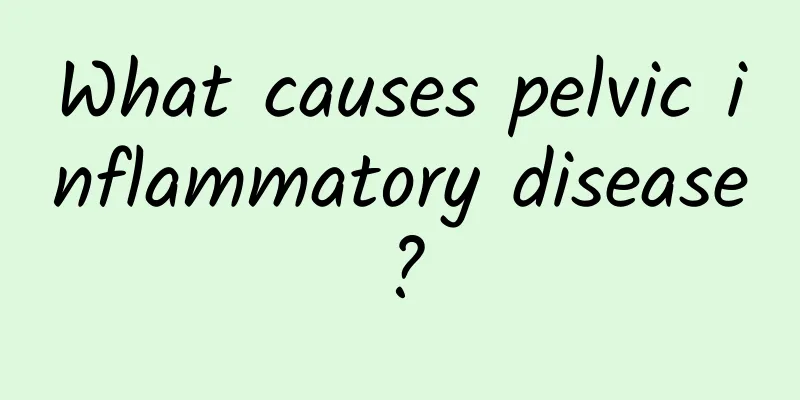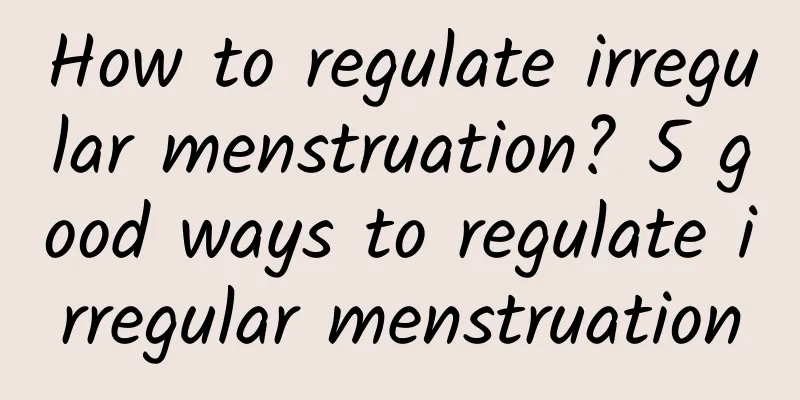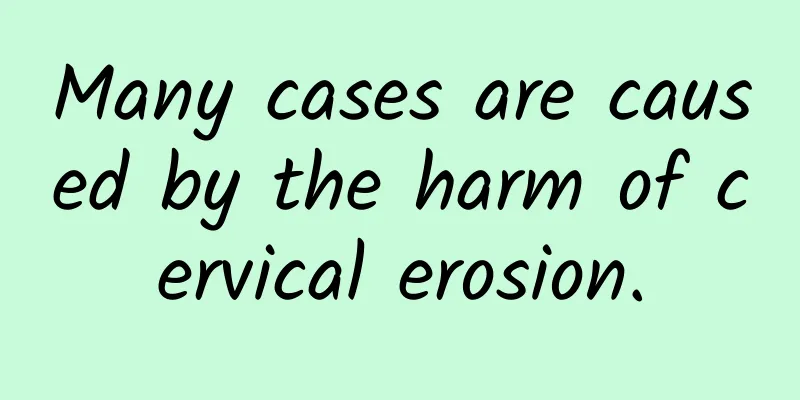Is surgery necessary for uterine cysts? Are there no other treatments?
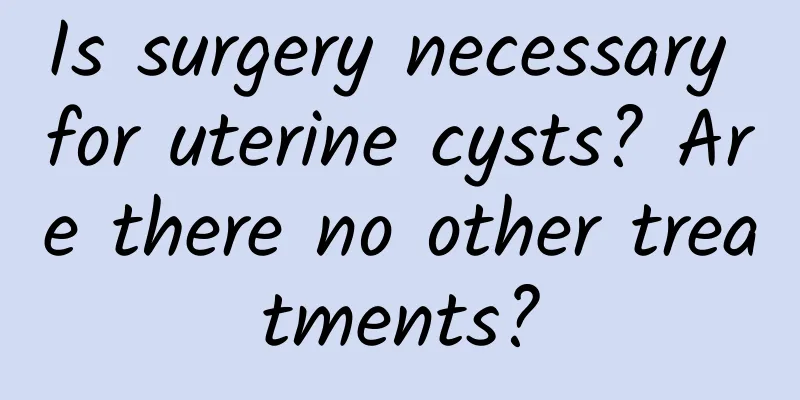
|
Uterine cysts do not necessarily require surgical treatment. The specific treatment method depends on the size and nature of the cyst and whether it causes obvious symptoms or complications. Some small benign cysts can be controlled by observation or drug treatment, but malignant or huge cysts may require surgical intervention. Uterine cysts are a common gynecological disease, usually caused by abnormal hormone secretion, inflammatory response or other pathological changes. Common types include uterine fibroid cysts, adenomyosis cysts, etc. If the benign cyst is small or the symptoms are not obvious, surgical treatment is usually not required, and its changes can be observed through regular ultrasound examinations for 3-6 months. If combined with menstrual abnormalities, pain or infertility problems, medication can be used for treatment, such as menstrual regulation drugs (such as medroxyprogesterone acetate), gonadotropin-releasing hormone agonists (GnRH-a), or oral contraceptives to regulate hormone levels. Malignant cysts or those that are too large (usually >5cm in diameter) may compress other organs or cause severe pain. In this case, surgical resection is generally recommended, and minimally invasive laparoscopic surgery or traditional laparotomy can be selected. The specific plan needs to be comprehensively judged based on the patient's age, fertility needs, physical condition and the nature of the cyst. Uterine cysts are a common gynecological disease, usually caused by abnormal hormone secretion, inflammatory response or other pathological changes. Common types include uterine fibroid cysts, adenomyosis cysts, etc. If the benign cyst is small or the symptoms are not obvious, surgical treatment is usually not required, and its changes can be observed through regular ultrasound examinations for 3-6 months. If combined with menstrual abnormalities, pain or infertility problems, medication can be used for treatment, such as menstrual regulation drugs (such as medroxyprogesterone acetate), gonadotropin-releasing hormone agonists (GnRH-a), or oral contraceptives to regulate hormone levels. Malignant cysts or those that are too large (usually >5cm in diameter) may compress other organs or cause severe pain. In this case, surgical resection is generally recommended, and minimally invasive laparoscopic surgery or traditional laparotomy can be selected. The specific plan needs to be comprehensively judged based on the patient's age, fertility needs, physical condition and the nature of the cyst. Early examination and standardized treatment are very important. If the cyst is small and the symptoms are not obvious, the patient needs to maintain good living habits, have regular checkups, and avoid behaviors that may aggravate the symptoms, such as sitting for long periods of time and staying up late. In your daily diet, you can focus on the intake of foods rich in antioxidants, such as green vegetables, deep-sea fish, and nuts, to enhance immunity. If the cyst continues to grow or the symptoms worsen, you should adjust the treatment strategy in time under the guidance of a doctor to avoid delaying the disease. Scientific evaluation and individualized treatment are the key to dealing with uterine cysts. |
<<: Can I get pregnant if I have irregular menstruation and polycystic ovary syndrome?
>>: What medicine to take for abdominal inflammation and pelvic inflammatory disease
Recommend
What vegetables and meat can be eaten with uterine fibroids? What foods can be eaten with uterine fibroids?
What vegetables and meat can be eaten with uterin...
What nursing knowledge does pelvic inflammatory disease have
Pelvic inflammatory disease can spread upward fro...
What are the common treatments for pelvic peritonitis?
Everyone should be familiar with pelvic peritonit...
What is the reason for dark brown period two days before menstruation?
What is the reason for dark brown period two days...
What diseases can be complicated by endometriosis?
Nowadays, endometriosis has become one of the mos...
Two good treatments for adnexitis
The incidence of adnexitis is generally very high...
Clenbuterol is only for imported cattle and horses. President: There is a difference between domestic and foreign
The Codex Alimentarius Commission (Codex) has set...
What is the reason for three menstrual periods in a month?
What is the reason for three menstrual periods in...
What are the effects of chronic cervicitis? How can women prevent chronic cervicitis?
Chronic cervicitis is a gynecological disease wit...
Is it healthy to eat ginseng every day? Chinese Medicine Practitioner Lin Qinyi: Are you taking the 8 major health-preserving Chinese medicines correctly?
Health preservation emphasizes that "medicin...
How to prevent pregnancy with adenomyosis
Adenomyosis, also known as adenomyosis, mainly oc...
How much does it cost to cure uterine effusion?
The prevalence of uterine effusion has been incre...
Cervical erosion can lead to infertility
Many women are told that they have cervical erosi...
What are the examinations for patients with ovarian crown cysts?
Ovarian crown cysts are cysts located in the broa...
Can pelvic inflammatory disease cause amenorrhea?
Pelvic inflammatory disease is a common gynecolog...

